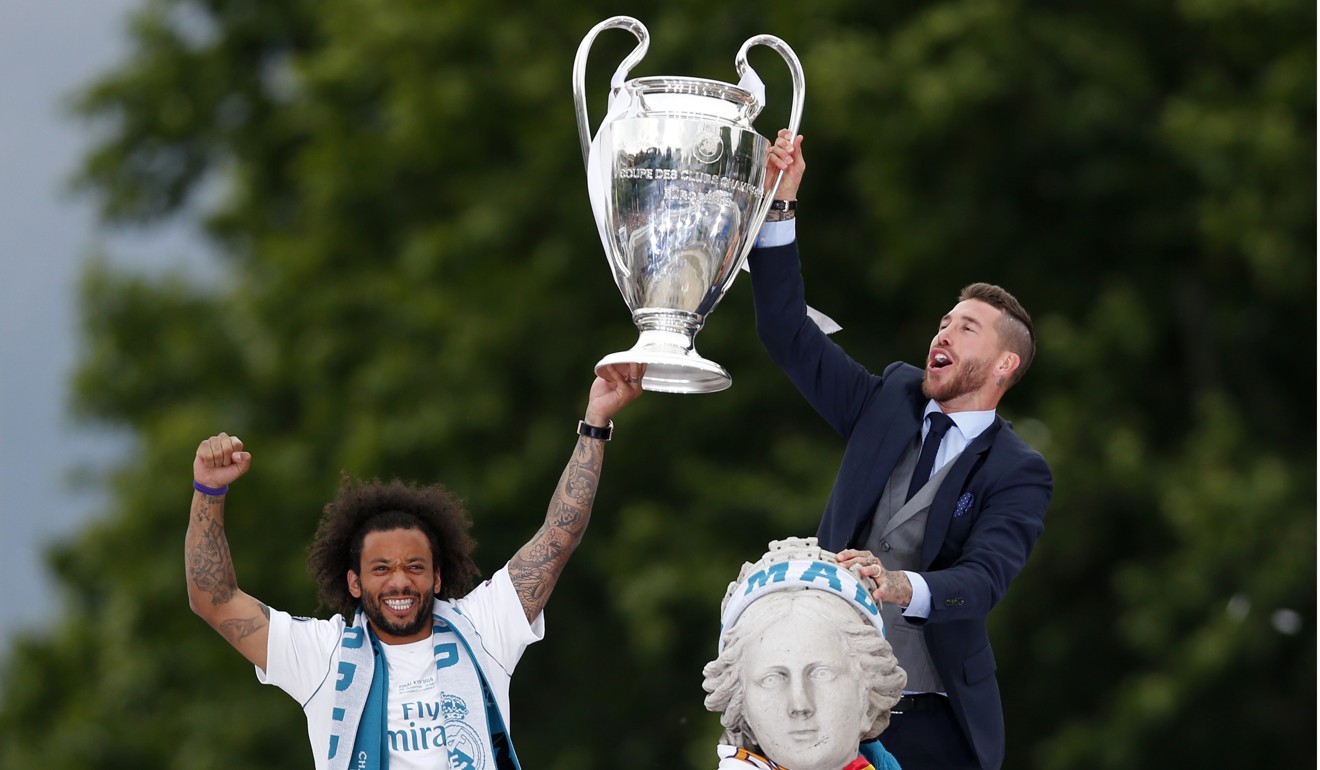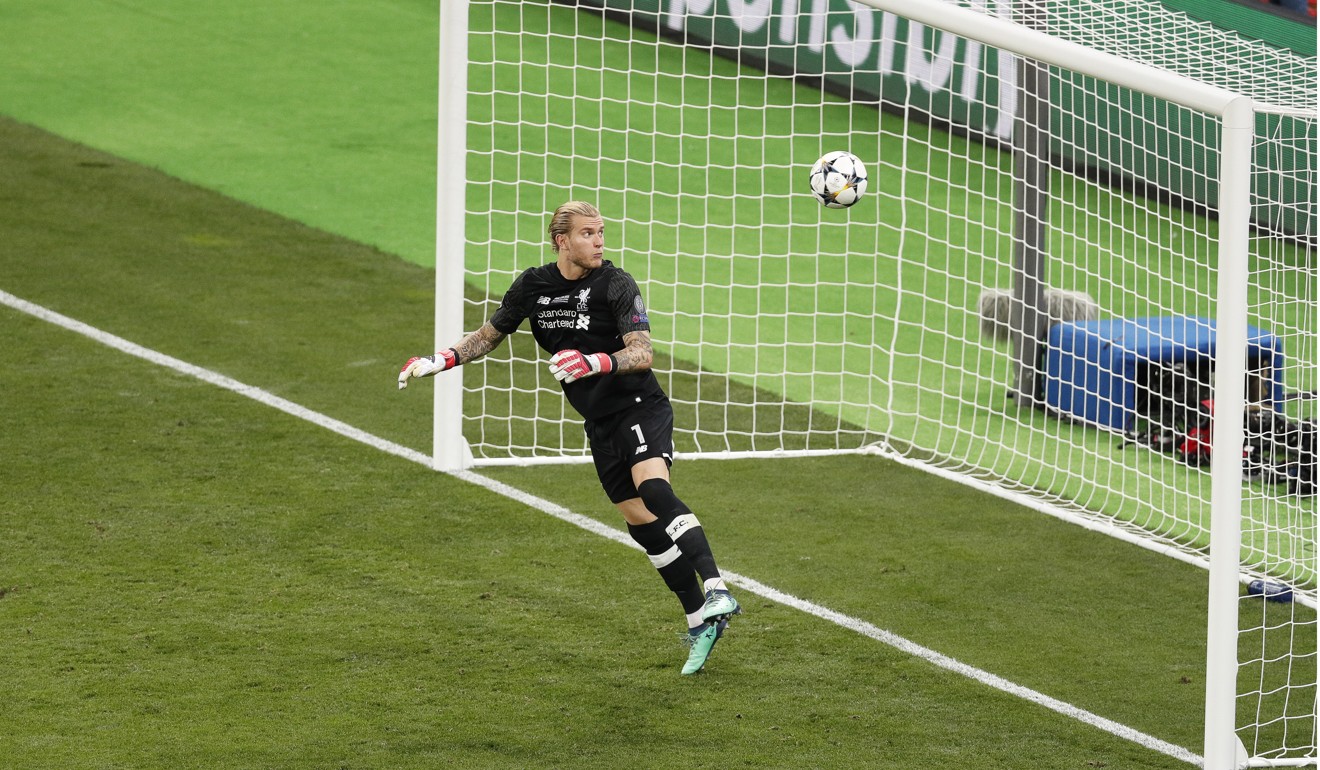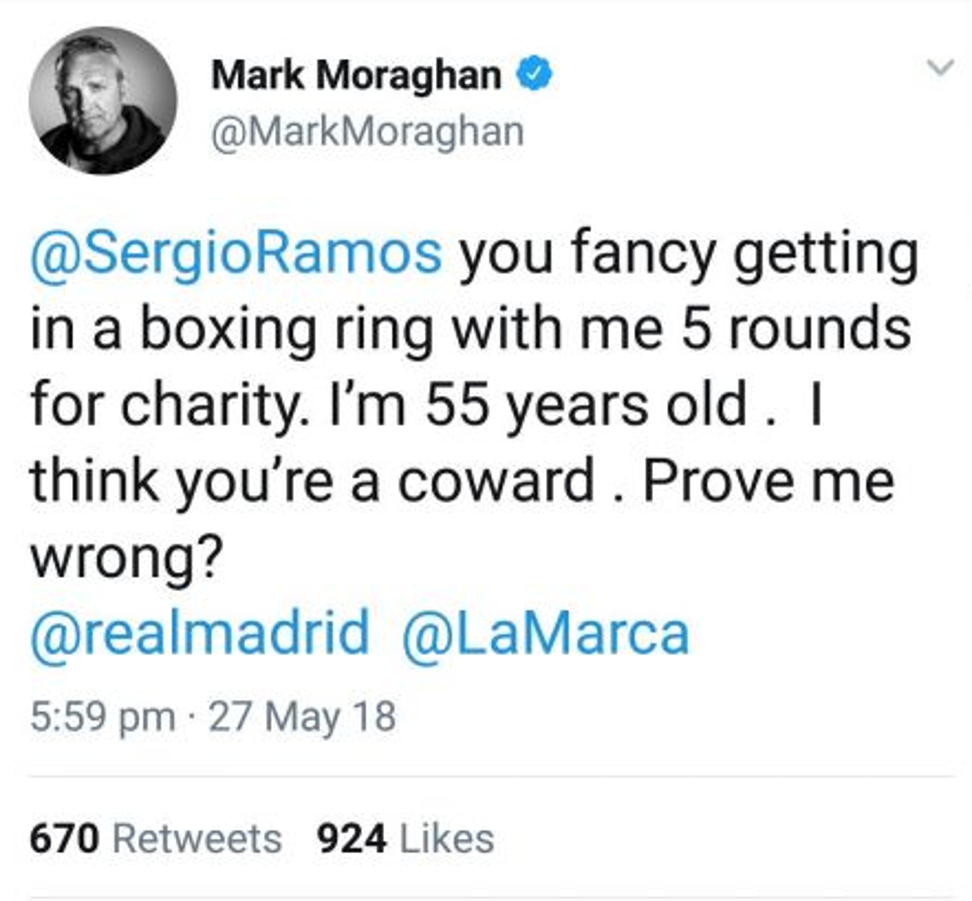
Bragging rights and spoiling for fights – scorned football fans continue to put the twit in Twitter
Social media fizzes with final fallout in the days following Liverpool’s loss to Real Madrid in the Champions League
Like many Liverpool fans, Moraghan was incensed that Ramos’ tangle with Liverpool’s brilliant Mo Salah led to the Egyptian leaving the field prematurely. Ramos is a serial exponent of football’s dark arts, but no foul was committed. Moraghan’s view was that only a fist fight with a man he didn’t know would do as revenge.

The joy was not only confined to Madrid and their supporters, but anyone else who wanted Liverpool to lose. There were the Everton fans wearing Real Madrid shirts in a Merseyside pub. They’ve never seen their team in a European Cup final, but that didn’t stop them celebrating wildly.
Football grudges, some of them irrational, can last a lifetime. I recently met an Arsenal fan who has refused to visit Wales since seeing his team defeated by Wrexham in a 1992 FA Cup tie.
In Barcelona, fans hoped that Madrid would fail on Saturday. In Manchester, the city came together temporarily to hope Liverpool would lose: United fans because Liverpool are their biggest rivals, City fans because Liverpool had earlier eliminated them from the competition.
As 30,000 Liverpool fans had a great time in the Kiev sunshine, there were other fans watching on TV waiting to be outraged, to scream bias if things went against their view, to laugh if their rivals lost. To basically behave in a way which would have you disciplined in most workplaces. After all, aren’t “bragging rights” an excuse to make a fool of yourself over something into which you’ve had no direct input?

Social media has made it far, far more pronounced. Death threats are regularly issued to footballers for heinous crimes such as leaving their club for a better paid contract at a bigger club, conceding a goal or missing a chance.
Fans wait for mistakes to be made by rival supporters so that they can pounce on them and thus pronounce their behaviour typical of an entire fan base. Liverpool fans abusing United’s Marouane Fellaini in Kiev for his club allegiances were thus cast as being “typical Scousers”. It all made delicious clickbait for publishers, knowing readers would rather see confrontation than Fellaini chatting agreeably and posing for photos.
Some media were also happy to fan the flame of an online petition addressed to football’s governing bodies Uefa and Fifa calling for Ramos to face action for “intentionally hurting” Salah. It was signed by 400,000 within 36 hours.
Most rational Liverpool fans would cringe at this, as much as most United fans did when a group of supporters they’d never heard of flew a plane over Villarreal urging Cristiano Ronaldo to return to Old Trafford. You can’t take out an entire fan base because of the embarrassing actions of a few.
Ramos is cynical and cunning, but wasn’t Luis Suarez? Heroes to some, villains elsewhere.
Let’s hope those signing the Ramos petition are prepared to go further than the 9,000 Belgian fans who confirmed on Facebook that they would attend a protest outside the Belgian FA’s offices after Radja Nainggolan was left out of Belgium’s World Cup squad. When the call to action came, only 23 could pull themselves away from their computers, so vast is the disconnect between online and reality. The missing 8,977 were presumably moving onto their next act of clicktivism.
In contrast, a genuine petition, one which urged British football fans to encourage a parliamentary debate over safe standing terraces to be introduced at top flight English football grounds – one backed by fan groups at most of the leading clubs – took 14 days to reach the 100,000 names required for it to be debated in British Parliament.
Not that every response is straightforward. I felt genuinely sorry for Loris Karius on Saturday, yet also found it amusing that his blunders helped shatter Liverpool’s dream. I admired him for publicly apologising, yet also saw it as an admission of weakness.
I worried about the impact on his mental health of a million insults and threats from people who don’t care or think about what they say, but then if you’re paid to perform at the top level and don’t, it goes with the territory.
Football allows for all of this and it takes little for people to get carried away. But what if Ramos had agreed to Moraghan’s (hopefully) tongue-in-cheek challenge? A 32-year old, 1.84 metre-tall, 82 kilogram, professional athlete in his prime against the 55-year old narrator for Thomas the Tank Engine. Imagine the online audience for that, imagine the conflicting emotions of sympathy and bloodlust. Fortunately, football has not quite lost its mind completely.


